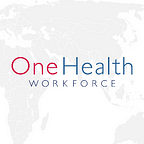Bringing an Innovative Health Surveillance System to Communities
Designed by Chiang Mai University’s faculties of veterinary medicine, engineering, and economics, the PODD mobile app serves as a platform for different sectors to work together as a disease surveillance network.
Wichian Taepin, assistant village headman of Ban Koo Hor Samakki in Chiang Mai’s Chom Thong district, still remembered when he saw a dozen of his backyard chicken dead on an early May morning. The first thing he did was pick up his smart phone and report the incident with photos of the dead poultry to his LINE group.
As soon as he posted his message on the communication application, his LINE group members, comprised of staff at local administrative bodies and those at the district office, picked up his message. They connected and coordinated with livestock and health officials and other health volunteers in the area by using the Participatory One Health Disease Detection (PODD) mobile app. Within hours, a surveillance rapid response team (SRRT) arrived at the site to investigate the outbreak situation, clean up the area, and dispose of the carcasses.
Thanks to the innovative technology and the strong network, fowl plague (highly pathogenic avian influenza) was quickly identified. The outbreak was controlled in the area by the end of the day. No cases of poultry fatalities have been reported in the village or other villages in the Chom Thong district for months.
“We can also use technology to not only help control animal outbreak in remote area real-time if we are trained to work together with authorities and others in the area. Community should be a part of the disease surveillance system in a bid to help reduce infectious and zoonotic diseases,” Taepin said.
Like other agricultural-based provinces in Thailand, Chiang Mai also faces a series of mass livestock pig and poultry deaths caused by zoonotic diseases such as cholera and bird flu. As a world-renowned tourist destination, Chiang Mai generates a large amount of income from its human-animal-environment interface, but infectious disease threats (i.e. Ebola, MERS, bird flu, and Nipah — even HIV/AIDS) can be transmitted from monkeys to humans and threaten the province’s appeal to tourists.
Realizing the need to prevent pandemics and the transmission of animal diseases to humans, PODD was created. The first phase of the project has operated since August 1, 2014 with original funding support from the Skoll Global Threats Fund to create a mobile app that helps link relevant sectors together to work on zoonotic disease surveillance.
“If we cannot prevent these animal-to-human diseases, they could spread and become global epidemics. It is important that we can detect animal diseases and prevent the transmission to human,” said Terdsak Yano, PODD project leader.
It was crucial to know which animal diseases have the potential to become an epidemic and determine whether they can be transmitted from animals to humans. Reporting an outbreak situation from a remote area to the central office was time consuming. A lack of proper communication channels and delayed reports could increase outbreak opportunities, he said.
Since coordination with various agencies is needed to respond to different circumstances, PODD is a digital tool that enables villagers to take care of their own communities by using innovative technology. The mobile app also creates a channel for local villagers to report situations in real time to authorities.
After receiving a report from a volunteer, the PODD team coordinates with officials at district and sub-district administration bodies, the village headman, and health volunteers trained on using the mobile app to curb the outbreak, said Taweesart Tantiyanond.
Amporn Chaileurn, a health volunteer at the Ban Luang district, said people used telephones to connect with each other in the past. However, smartphones now connect people to each other more effectively and efficiently. Today, there are no more communication barriers between communities and authorities.
In the Chom Thong district, three groups of staff were trained to work on PODD and to teach local residents how to use their smartphones to report suspicious cases.
The PODD app is a good example of how innovation and technology utilisation can make a change.
Believing that technology can bring about change and make the world a better place, the South East Asia One Health University Network supported a session on the lessons learned during the first phase of the PODD project that was recently held in Chiang Mai, Thailand. Up to 50 participants from regional intergovernmental and non-profit organizations met during July 11–13, 2016 in Chiang Mai to discuss and seek ways on how to further develop the mobile application that helps strengthen collaboration among local communities and One Health professionals in the province.
There is still room for the mobile application development to grow. Capacity building through training on how to use mobile application to wider groups of villagers and local field staff will increase effectiveness and efficiency of multisectoral collaboration and disease surveillance system in the long run, said Lertrak Srikitjakarn SEAOHUN Foundation Chairman.
About the Author
Apiradee Treerutkuarkul is a communications specialist with the South East Asia One Health University Network (SEAOHUN), a network supported by the USAID One Health Workforce project.
